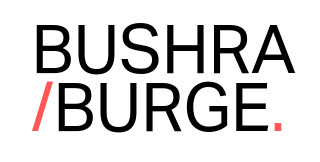Maaz - SUSTAINABILITY GAME set on mars
Creative Director
Partners
StoryFutures
Keywords
Space, Sustainability, Ethics, Game, Immersive, Narrative, Sci-fi, Circular Economy
Brief
Game
Creative Process / Work in Progress
Working with eminent academics at Royal Holloway University to develop an immersive sustainability speculative futures game narrative commisioned by StoryFutures. Currently being developed in a narrative driven immersive experience by Bushra Burge Studio.
Mars the red planet, God of War, at 33.9 million miles away is our nearest neighbour. Near enough for us to feel it is ours but far enough away to see it in its entirety. A familiar backdrop for myths and speculation about alien invasion and human colonisation. Now becoming a reality as our next frontier inspiring human innovation, ingenuity and resilience. The best of humanity.
What does this mean for the rest of humanity?
What does this mean for resources and species we interact with?
Máaz (the Navajo Indian word for Mars), is a new stylish, fun game which explores progress and innovation through engaging interactive stories about complex sustainable and ethical issues.
This faraway vantage empowers us to consider all of the moving parts which can be difficult to face when we are entangled in it. Focusing on the contradictory world of Fashion, an industry built on exploitation, toxicity, power imbalance but also great beauty and creativity, we explore the impact of personal choice as part of a circular system.
Academic Advisors
Dr. Rachael Squire (Geography)
Research interests
My research interests centre upon the critical geopolitics of undersea spaces with a specific focus on the US Navy's Cold War undersea living projects known as Sealab I, II, and III. Through these case studies, my work explores the function of concepts like territory and terrain beyond terra, the interplay between the human body and extreme environments, and the role of the non-human in characterising territorial volumes.
Professor Peter Adey (Geography)
Research interests
Much of my research has revolved around the putative ‘new mobilities paradigm’, mobility futures and infrastructures– especially in the context of airports and aeromobilities. I published my first books Mobility ( 2009; 2017 2nd edition), Aerial Life: spaces, mobilities, affects (2010) and Air (2014) on the topics. I am a co-editor of the journal Mobilities, one of the leading journals for research on mobility, migration and transport, as well as a co-editor of the Handbook of Mobilities (2014), The Handbook of Displacement (2020), From Above: war, violence and verticality (2013), and with Monika Büscher (Lancaster) I am co-editor of the Changing Mobilities book series. With Tim Cresswell, Jane Jeonjae Lee, Andre Novoa, Anna Nikolaeva and Cristina Temenos, our book Moving Towards Transition: commoning mobility for a low carbon future will be out with Zed Books later in 2021. Our mobility transitions research builds on a 3 year research programme which was led by Tim Cresswell and funded by the Mobile Lives Forum. I am currently finishing my long-term book project The Way We Evacuate with Duke University Press.
In development is an Encyclopedia of Mobilities co-edited with Kaya Barry and Weiqiang Lin and contracted with Edward Elgar. I am also the co-I of the Music, Migration and Mobility project led by the Royal College of Music (https://www.musicmigrationmobility.com/).
Dr. Rikke Bjerg Jensen (Information Security), Royal Holloway, University of London
I am a social scientist and ethnographer researching collective security practices. My work explores the different security needs, perspectives and practices amongst groups of people living and working on what we might call the edge of society. It thus focuses on how technology and the information flows that it enables - shaped by social structures, relations and interactions - facilitate multiple security experiences and understandings. My research is inherently ground-up in nature and driven by the co-production of knowledge with diverse groups of people, in order to understand the wider security implications of information technology. I have undertaken extensive fieldwork as part of several distinct research projects, in the UK and overseas, with maritime and seafaring communities, refugee and migrant communities as well as protesters. She/her, they/them.
IN CONCEPT DEVELOPMENT PHASE
UN Goals


